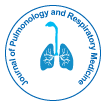Наша группа организует более 3000 глобальных конференций Ежегодные мероприятия в США, Европе и США. Азия при поддержке еще 1000 научных обществ и публикует более 700 Открытого доступа Журналы, в которых представлены более 50 000 выдающихся деятелей, авторитетных учёных, входящих в редколлегии.
Журналы открытого доступа набирают больше читателей и цитируемости
700 журналов и 15 000 000 читателей Каждый журнал получает более 25 000 читателей
Индексировано в
- ICMJE
Полезные ссылки
Журналы открытого доступа
Поделиться этой страницей
Абстрактный
Understanding Pulmonary Emphysema: Causes, Symptoms, and Management
Devlena Khan
Pulmonary emphysema is a chronic and progressive respiratory condition characterized by the irreversible destruction of lung tissue and the development of abnormally enlarged air sacs, known as alveoli. This abstract provides an overview of pulmonary emphysema, exploring its primary causes, common symptoms, and available management strategies. Pulmonary emphysema primarily results from long-term exposure to irritants, most notably cigarette smoke. Inhalation of these irritants triggers inflammation, which leads to the breakdown of the lung's elastic fibers and the eventual destruction of alveoli. Genetic factors, such as alpha-1 antitrypsin deficiency, can also contribute to the development of emphysema. Emphysema often manifests with a range of debilitating respiratory symptoms. Shortness of breath, especially during physical activity, is a hallmark sign. Other common symptoms include chronic cough, wheezing, and excessive mucus production. As the disease progresses, individuals may experience weight loss, fatigue, and decreased tolerance for exercise.pulmonary emphysema is a chronic lung condition with significant implications for patients' respiratory health. Understanding its causes, recognizing its symptoms, and implementing appropriate management strategies are vital for improving the lives of those affected by this debilitating disease. Early intervention, especially smoking cessation, plays a pivotal role in slowing its progression and enhancing patients' long-term outcomes.
Журналы по темам
- Биохимия
- Ветеринары
- Генетика и молекулярная биология
- Геология и науки о Земле
- Еда и питание
- Иммунология и микробиология
- Инженерное дело
- Клинические науки
- Материаловедение
- медицинские науки
- Науки об окружающей среде
- Общая наука
- Сельское хозяйство и аквакультура
- Социальные и политические науки
- Уход и здравоохранение
- Фармацевтические науки
- Физика
- Химия

 English
English  Spanish
Spanish  Chinese
Chinese  German
German  French
French  Japanese
Japanese  Portuguese
Portuguese  Hindi
Hindi